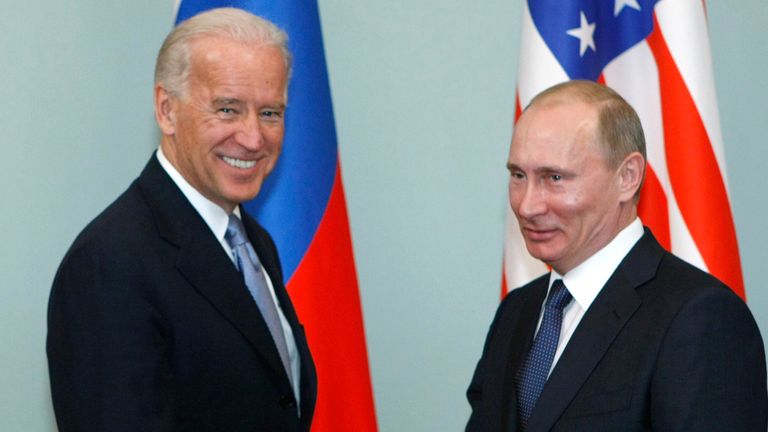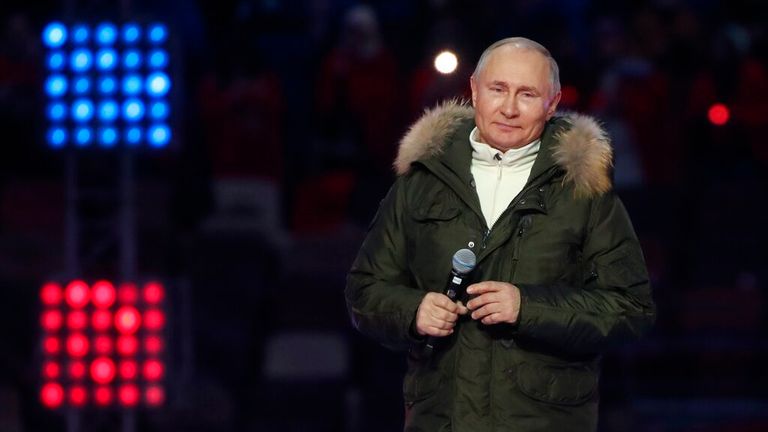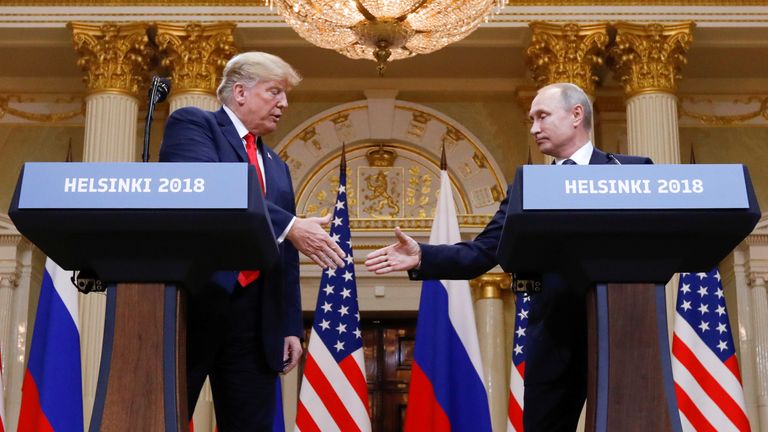Vladimir Putin has hit back at Joe Biden after the US president said he agreed that his Russian counterpart was a “killer”.
Mr Putin suggested the US president was accusing him of something he was guilty of himself.
He said every country had its own “bloody events” and cited moments in US history such as the killing of Native Americans, the use of the atomic bomb, slavery, and the Black Lives Matter protests.
It comes after Mr Biden replied “I do” when asked in an interview this week if he thought Mr Putin was a killer.
He also described the Russian leader as having no soul and said he would “pay a price” after an intelligence report said Mr Putin had approved operations to help Donald Trump in last year’s election – something the Kremlin denies.
Russia recalled its ambassador to Washington for consultation after Wednesday’s remarks and has warned there could be further action.
Asked on Thursday what he would tell 78-year-old Mr Biden, Mr Putin appeared to refer to his age, saying: “I would tell him: ‘Be well.’ I wish him health, and I say that without any irony or joking.”
On the “killer” remark, Mr Putin said: “I remember in my childhood, when we argued in the courtyard with each other we used to say: ‘It takes one to know one.’
“And that’s not a coincidence, not just a children’s saying or joke. The psychological meaning here is very deep.
“We always see our own traits in other people and think they are like how we really are. And as a result we assess (a person’s) activities and give assessments.”
Mr Putin, speaking in a video call to mark the 2014 annexation of Crimea, said he would still cooperate with America – but only when it is in Russia’s interests.
He said “a lot of honest and decent people in the US want to have peace and friendship with Russia”.
“We are aware of it, we value it and will rely on them in the future,” Mr Putin said.
Kremlin spokesman Dmitry Peskov earlier said Mr Biden’s “very bad” comments were unprecedented and showed he did not want to normalise relations.
Andrei Turchak, head of the main pro-Kremlin United Russia party, said they were a reflection of “the US political marasmus and its leader’s dementia”.
On Facebook, the deputy chair of the Russian parliament’s upper house, Konstantin Kosachyov, said the recalling of the ambassador might not be the final retaliation if “no explanation or apology” is forthcoming.
Mr Biden’s administration has taken a tougher stance on Russia than Mr Trump’s non-confrontational approach.
White House spokeswoman Jen Psaki said on Wednesday that the US government would “be direct” and “speak out on areas where we have concerns… as the president said last night – certainly, the Russians will be held accountable for the actions that they have taken”.
Relations with the West have deteriorated in recent years after a series of events attributed to Mr Putin’s regime but denied by the country – such as alleged election interference, hacking, and the novichok poisonings of Sergei Skripal and opposition leader Alexei Navalny.













